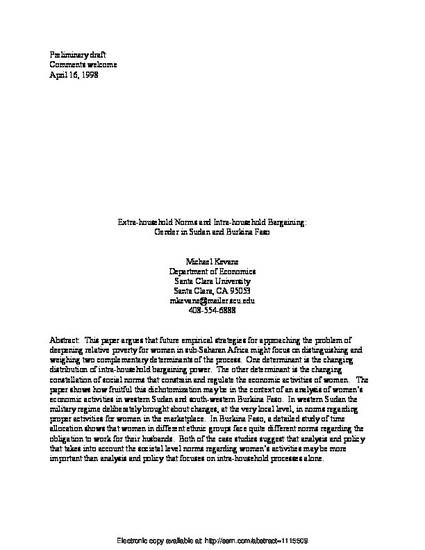
This paper argues that future empirical strategies for approaching the problem of deepening relative poverty for women in sub-Saharan Africa might focus on distinguishing and weighing two complementary determinants of the process. One determinant is the changing distribution of intra-household bargaining power. The other determinant is the changing constellation of social norms that constrain and regulate the economic activities of women. The paper shows how fruitful this dichotomization may be in the context of an analysis of women's economic activities in western Sudan and south-western Burkina Faso. In western Sudan the military regime deliberately brought about changes, at the very local level, in norms regarding proper activities for women in the marketplace. In Burkina Faso, a detailed study of time allocation shows that women in different ethnic groups face quite different norms regarding the obligation to work for their husbands. Both of the case studies suggest that analysis and policy that takes into account the societal level norms regarding women's activities may be more important than analysis and policy that focuses on intra-household processes alone.
